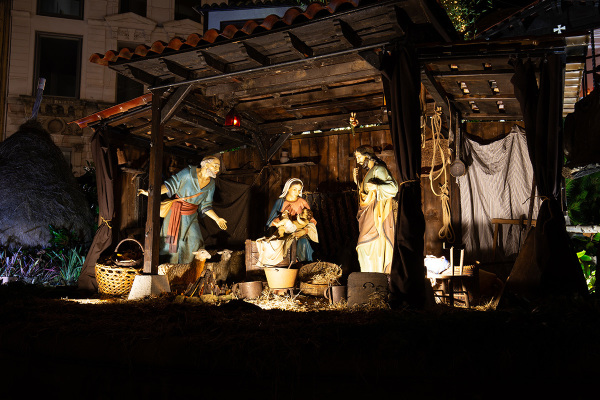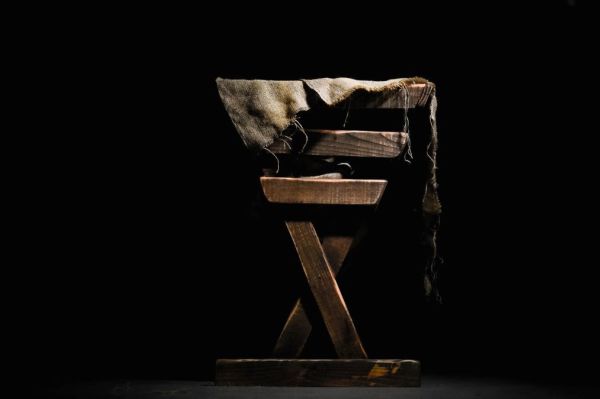Advice From a Man Without Arms

This headline caught my eye: "I was born with no arms and thought I was a hopeless mistake–and then this happened . . ."
Daniel Ritchie is a husband, a father of two, and a Christian speaker and writer. He is also a bit unusual in that he eats with his feet, drives with his feet, and brushes his teeth with his feet. As he explains, "I do everything with my feet because I was born without arms."
People have not always been sympathetic. He has been called names. He remembers a rude kid at Disney World. And the time he and his parents were asked to leave a restaurant because of the way he has to eat.
Daniel writes that, as a teenager, "The words of others began to warp my perception of the value of my life. I felt like damaged goods, broken and unlovable. Isolation and darkness were beginning to sweep over me. I started to hate myself and other people."
A shift in perspective changed everything
Then he found a verse in Scripture where David prayed to God, "I praise you, for I am fearfully and wonderfully made. Wonderful are your works; my soul knows it very well" (Psalm 139:14).
Here's how God used that verse in Daniel's soul: "I sat in my room and let that verse wash over me. Wonderful are your works God. You have taken your time to make me just like I am. I am not an accident or a genetic mutation. I am, by all accounts, different by design" (his emphasis).
At that moment, Daniel Ritchie made this transformative discovery: "I was no longer who people said I was. I was who God said I was."
When he learned to love himself as God loves him, he learned to love other people the same way. Now he invites us to join him:
"That change in my perspective, the realization of that truth, has altered the scope of my entire life. And I believe it's only that perspective that can change how we relate to one another in our increasingly vitriolic and divided culture–a culture where many demand that their differences are celebrated, but are offended by the different ethnicities or political ideologies of others. In that place, we have to see people first as God sees them. We have to approach them in love and with an understanding of their worth, before we can engage them in cultural dialogue" (his emphasis).
In other words, we have to imitate Jesus.
Meeting God in the Holy Land
I am returning today from leading a study tour to the Holy Land. Helping people meet Jesus in Israel is one of the great privileges of my life. I have led such pilgrimages more than twenty times; each time, the Lord meets me in a new way.
This pilgrimage was no different.
On Monday, I sensed God's leading to read a book by Henri Nouwen, one of my favorite spiritual writers. I looked for something I hadn't read and found Walk with Jesus: Stations of the Cross.
Henri wrote the book while lying in a hospital bed after he was hit by a passing van. He had recently resigned his position at Yale Divinity School to spend six months living among the poor in Bolivia, Peru, and Central America. Upon his return, he felt compelled to write about the suffering and faith he experienced there. His three-and-a-half-week hospital stay gave him that opportunity.
Reading Henri's book brought home to me three facts:
One: Jesus conquered pain and death by submitting to them. He chose to experience all that we suffer and to redeem it by his death and resurrection.
As Jesus carried his cross, so I must carry mine. I must acknowledge my weakness, failures, and suffering. Only then can I embrace the sufferings of others. I must feel the pain of the world before I have the right to speak to pain in the world. As Henri notes, "in this way only can a new humanity be born."
Two: Jesus received Simon of Cyrene's gift of bearing the cross, though our Lord could have called twelve legions of angels to his side (Matthew 26:53). In the same way, he receives our gifts and calls us to receive the gifts of others.
Three: Jesus allowed the Romans to execute him in the most humiliating manner imaginable. In this way, he chose to reveal his glory in his humility. Now we are called to do the same: "Life is an increasing call to let go of desires, of success and accomplishment, to give up the need to be in control, to die to the illusion of greatness."
Here is my favorite quote from this powerful book: "There is immense pain in the wide world around us; there is immense pain in the small world within us. But all pain belongs to Jesus and is transformed by him into glorified wounds that allow us to recognize him as our risen Lord."
"Die to the illusion of greatness"
After reading Henri Nouwen's book, I was prompted to go back into the Old City of Jerusalem and retrace the fourteen Stations of the Cross for myself. Though I had walked the Via Dolorosa many times with groups over the years, I had never done so by myself.
As I did, I was impressed by the mass of humanity surrounding me. People from languages, religions, and cultures the world over were crowded into these narrow, ancient streets with me. I found myself asking God how the church can possibly reach them all with the gospel. I sensed his answer: Just love them. And love Jesus.
Embrace my sufferings and theirs, offer my gifts, and "die to the illusion of greatness." Daniel Ritchie would agree.
Do you?
Originally posted at Denison Forum.





















